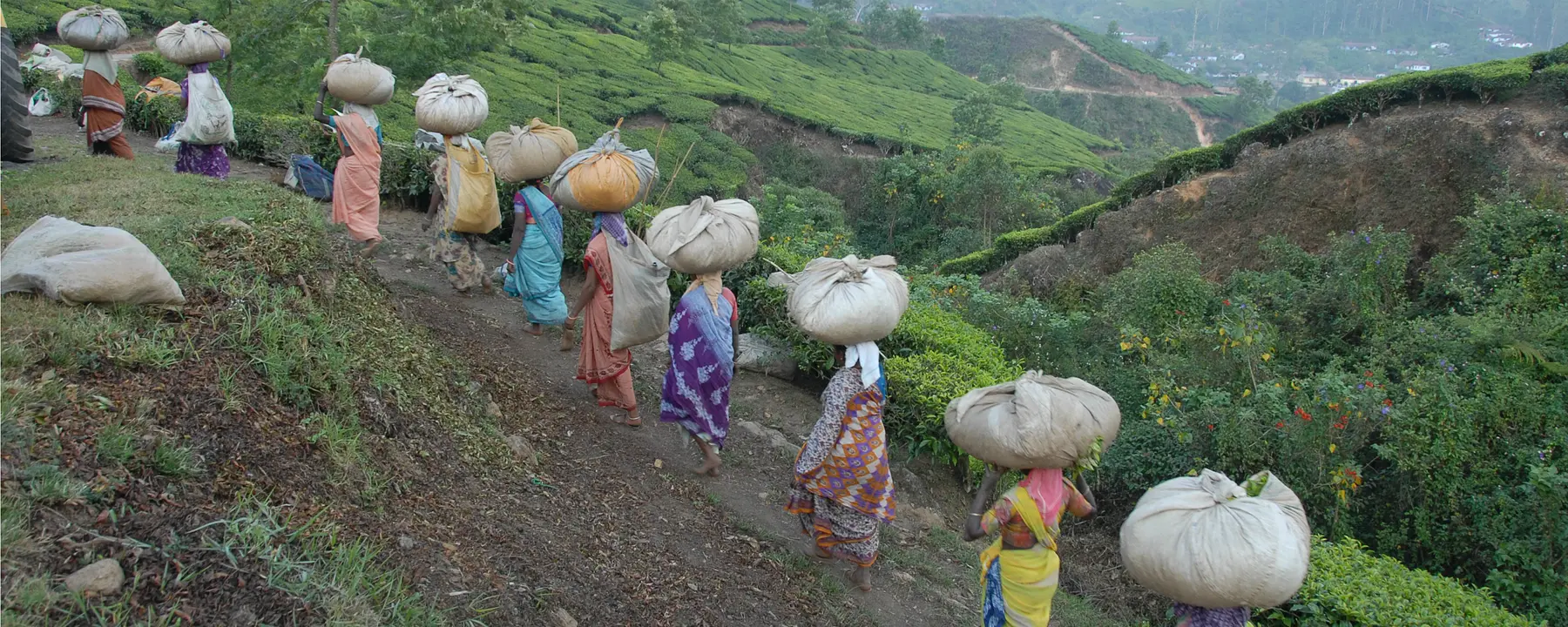Knowledge management: A tool for improved climate and environment learning and programming
Development practitioners around the world are working to manage climate risks, mitigate and adapt to climate change, and better understand and address biodiversity and conservation challenges. To do their work effectively, they need reliable and accessible sources to find critical tools, resources, and guidance. They also need a platform through which they can engage the practitioner community to share and exchange experiences, best practices, and lessons. Essentially, the more knowledgeable a practitioner is, the better he or she can design, manage, and implement an activity or program.
USAID’s Bureau of Economic Growth, Education and Environment (E3) relies on strong knowledge management programs to help address the learning and information needs of its staff and partners. The USAID Environmental Communications, Outreach, and Learning (ECO) project is one example. Along with Training Resource Group (TRG) and Forum One, RTI led the project’s knowledge management component.
Working in close collaboration with E3’s Office of Global Climate Change (GCC) and Office of Forestry and Biodiversity (FAB), we designed and implemented key knowledge management strategies. We helped launch and manage GCC’s global knowledge portal and community, Climatelinks, and FAB’s global knowledge portal, the Biodiversity Conservation Gateway. We also managed the FRAMEweb online professional community.
Through these knowledge portals, we curated, archived, and developed technical guidance, tools, and resources for use by USAID staff and partners, and the wider community of climate change, forestry, biodiversity, environment, and development practitioners. Working with USAID/Washington, mission staff, and partners, we identified, curated, summarized, and published hundreds of environment-related USAID-supported reports, tools, guidance, case studies, fact sheets, policies, how-to-guides, videos, webinars, country-specific information, and websites for the two portals.
Together, these resources support USAID’s goal of sharing valuable knowledge throughout a worldwide community of stakeholders.
Climatelinks: A Vital Information Source for Climate Change
Climatelinks aims to capture the knowledge and learning coming out of USAID climate change and development investments and support climate risk management efforts across all development sectors. In its first three years, Climatelinks' subscriber list grew to more than 4,600 and had 134,000-plus users. During that period, it hosted more than 1,400 resources, 19 tool profiles, and 300 blog posts, and had over 42,000 resource downloads.
To adaptively manage Climatelinks’ content development strategies and audience needs over the course of the project, we engaged our community of practice though multiple focus groups, surveys, and individual communications. By incorporating community feedback, we improved Climatelinks by developing new, creative website features and content and adjusting email marketing and social media outreach strategies to fit audience needs and interests. We also worked to improve user experience and portal functionality, conducted quality controls of portal content, developed systematic tagging, and continuously revised and reorganized portal content and pages.
By implementing various community management and engagement strategies, Climatelinks kept existing audiences engaged and attracted new users. Strategies included the following:
- Developing blogs that showcased practitioner experiences, lessons learned, or tools; sharing germane in-person and online events
- Working with USAID implementing partners to leverage, create, and amplify project outputs
- Collaborating with and joining related communities and organizations
- Disseminating themed newsletters (featuring reports, case studies, fact sheets, project resources, blogs, and articles)
- Hosting knowledge sharing events (online chats and webinars)
- Sharing content and engaging on Twitter, LinkedIn, and YouTube
- Participating in in-person events to network
- Building interactive portal features, such as call to action buttons, to encourage engagement.
Tracking and analyzing portal analytics on a weekly, monthly, and quarterly basis was also instrumental to understanding audience engagement and their use of portal content.
The Biodiversity Conservation Gateway: A Collection of Resources on USAID Projects
The Biodiversity Conservation Gateway communicates with conservation and development stakeholders on the implementation of the USAID Biodiversity Policy and USAID’s support of other key U.S. government initiatives and polices. The Gateway showcases recent and legacy USAID-supported projects and resources.
Karl Wurster, USAID/Nepal’s Environment and Energy Team Leader, said that the Gateway "contains important publications, documents, and tools, which are being regularly updated and augmented. It is very helpful to have a centralized space for resources that are useful to mission staff in learning and improving their work." He also mentioned that it helped him design an interagency strategy to combat wildlife trafficking.
Through a knowledge management needs assessment, we helped the FAB office identify the knowledge needs of USAID Missions, and make need-based resources available on the Gateway in order to address the knowledge gaps. It also aided in the design of an effective, demand-based KM strategy. Collecting portal analytics was also helpful to better understand how the portal communities were accessing site content.
FRAMEweb: Building an Online Community for Natural Resource Managers
FRAMEweb is an online community where more than 3,000 global members share knowledge, learn about upcoming events, and connect with other professionals dedicated to the fields of environment and natural resource management. We helped facilitate knowledge-sharing among its members through online discussions and sharing of documents and other resources to improve environment and natural resource management practice. We also conducted quality controls on portal pages and updated portal content.
Through the ECO project, we established long-standing relationships and collaborated with dozens of USAID teams, staff, and implementing partners to understand and help address knowledge needs, and to amplify learning for improved project design and implementation at the intersection of climate change, forestry, biodiversity, environment, and development.
Keeping Important Information Accessible and Shareable for a Worldwide Community of Professionals
The suite of tools we created under the ECO project demonstrate our ability to offer organizations innovative, reliable knowledge management resources. Practitioners in diverse settings around the world now have streamlined ways to access and engage with relevant content. They can also connect with one another around their shared concern with climate change. As a result, they are better prepared to meet this global challenge.
- U.S. Agency for International Development (USAID)
